The Life of Emile Zola

Brief Synopsis
Cast & Crew
William Dieterle
Paul Muni
Joseph Schildkraut
Gale Sondergaard
Donald Crisp
Gloria Holden
Film Details
Technical Specs

Synopsis
Struggling writer Emile Zola and painter Paul Cezanne share a drafty garret. Zola's mother gets him a job with a publisher enabling him to marry Alexandrine, but the couple are still very poor. When Zola's book The Confessions of Claude is published, its criticisms of city officials attract the attention of the police and cost him his job. Zola continues to write about corruption and the hard lives of the people, but there is not much interest in his books until he meets a prostitute, Nana, and writes her story. The publication of Nana makes Zola a success at last and each new book adds to his fame. Finally, it is announced that Zola is to receive the Legion of Honor. Cezanne visits the Zolas before he leaves for the South and warns Zola not to become fat and complacent in his work. Meanwhile, French army secrets have been passed to the Germans, and Alfred Dreyfus, a Jew, has been accused of the crime. Although he protests his innocence and evidence points to Count Walsin-Esterházy, Dreyfus is convicted and sentenced to Devil's Island. Dreyfus' wife Lucie vows to clear her husband's name. She visits Zola to beg him to help her, but he sends her away, saying that his fighting days are over. However, he starts to read the evidence that Lucie has left behind and, remembering Cezanne's words, decides to come to Dreyfus' aid. He writes the famous "I Accuse" and is tried for libel. With public approval, Zola is found guilty and sentenced to prison, but he flees the country for England where he continues to speak out. Finally, the Dreyfus case is reopened and Zola comes home. As he sits up late one night writing, he inhales carbon monoxide gas from a faulty stove and dies before he has the pleasure of seeing Dreyfus reinstated with his full rank.

Director
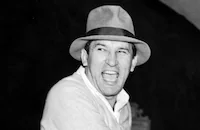
William Dieterle
Cast
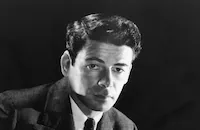
Paul Muni
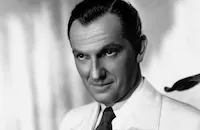
Joseph Schildkraut

Gale Sondergaard
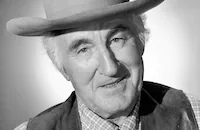
Donald Crisp

Gloria Holden
Erin O'brien Moore
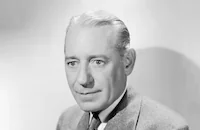
Henry O'neill

Morris Carnovsky

Louis Calhern

John Litel

Ralph Morgan

Robert Barrat

Vladimir Sokoloff
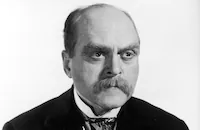
Grant Mitchell
Henry Davenport
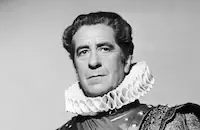
Robert Warwick
Charles Richman

Gilbert Emery

Walter Kingsford
Paul Everton
Frank Sheridan
Lumsden Hare
Marcia Mae Jones
Florence Roberts

Dickie Moore
Rolla Gourvitch
Frank Mayo
Paul Everton

Montague Love
Iphigenie Castiglioni

Louis Calhern

Bonita Granville
Ferdinand Gottschalk

Irving Pichel
Egon Brecher
Dolores Weisenfreund
Crew
Milo Anderson
Henry Blanke
S. Charles Einfeld
Leo F. Forbstein
Tony Gaudio
Anton Grot
Heinz Herald
Heinz Herald
Geza Herczeg
Geza Herczeg
Ali Hubert
Warren Low
Norman Reilly Raine
Irving Rapper
Russ Saunders
Max Steiner
Jack L. Warner
Perc Westmore
Albert C. Wilson

Photo Collections
Videos
Movie Clip




Trailer
Hosted Intro
Film Details
Technical Specs

Award Wins
Best Picture
Best Screenplay
Best Supporting Actor
Best Writing, Screenplay
Award Nominations
Best Actor
Best Art Direction
Best Director
Best Score
Best Sound
Articles
The Life of Emile Zola
The idea for a film about novelist Emile Zola and his defense of the court-martialed army officer Alfred Dreyfus, a victim of military cover-ups and anti-Semitism, came from European playwrights Heinz Herald and Geza Herczeg. They presented their story to producer-director Ernst Lubitsch at Paramount Pictures, but he knew the only man for the lead was Muni, so he helped them take the story to Warner Brothers. Producer Henry Blanke sold the idea to studio head Jack Warner, then assigned studio writer Norman Reilly Rain to help the story's writers turn it into a screenplay. Although the film bore clear parallels to Hitler's persecution of the Jews in Germany, they managed to tell the story without ever using the word "Jew."
Muni spent four weeks with make-up artist Perc Westmore to come up with the right look for the character through four different stages in his life. They decided that Muni should grow his own beard for the role. And since Zola's beard had grown fuller through his life, they convinced the studio to shoot the story backwards, so Muni could trim the beard as they moved into earlier stages of the author's life.
On the set, Muni drove himself mercilessly. For the big trial scene - a six-and-a-half minute speech done in one take - he insisted on repeated retakes even after director William Dieterle was satisfied. At day's end, he completed a perfect take, winning applause from the crew. But the next day he asked to do it again.
All the hard work paid off- The Life of Emile Zola got a standing ovation at its first preview, and prompted the New York Times's critic to call it "The finest historical film ever made and the greatest screen biography." Not only was the film a top performer at the box office, but it captured the New York Film Critics Awards for Best Picture and Best Actor.
When the Oscar® nominations were announced, The Life of Emile Zola became the first film to win ten nominations, including Best Picture, Best Actor, Best Supporting Actor (stage star Joseph Schildkraut, who played Dreyfus) and Best Screenplay. Although the film would win for Best Picture and Screenplay, Muni and Schildkraut were convinced they couldn't win, so they planned to stay away from the ceremonies. Muni was right; Best Actor went to Spencer Tracy for Captains Courageous. But Schildkraut was awakened from a sound sleep by a call from an Academy® representative informing him that he would soon be announced as the year's Best Supporting Actor. He made it to the Biltmore Hotel in time to accept the award. Ironically, he would never make another film for Warner Bros.
Producer: Henry Blanke
Director: William Dieterle
Screenplay: Norman Reilly Raine, Heinz Herald, Geza Herczeg, based on the book Zola and His Time by Matthew Josephson
Cinematography: Tony Gaudio
Costume Design: Milo Anderson, Ali Hubert
Film Editing: Warren Low
Original Music: Max Steiner
Principal Cast: Paul Muni (Emile Zola), Gale Sondergaard (Lucie Dreyfus), Joseph Schildkraut (Capt. Alfred Dreyfus), Gloria Holden (Alexandrine Zola), Donald Crisp (Maitre Labori)
BW-117m. Closed captioning. Descriptive Video.
by Frank Miller

The Life of Emile Zola
Quotes
At this solemn moment, in the presence of this tribunal, which is the representative of human justice, before France, before the whole world, I swear that Dreyfus is innocent! By all that I have won, by all that I have written to spread the spirit of France, I swear that he is innocent. May all that melt away; may my name perish if Dreyfus be not innocent. He is innocent.- Emile Zola
Why didn't Picquart say anything?- Emile Zola
Colonel Picquart is a good officer. He kept silent at the request of his superiors.- Lucie Dreyfus
You mean they KNEW and they ordered him to suppress the truth? Why,that's monstrous!- Emile Zola
What does it matter if an individual is shattered -- if only justice is resurrected?- Emile Zola
Trivia
The film was shot in reverse order; Muni grew his own beard for the role, and it was trimmed and darkened as he proceeded to scenes where Zola is younger. His makeup took three and a half hours to apply each morning.
Notes
The real life Alfred Dreyfus was a French army officer of Jewish heritage who was convicted of treason and imprisoned on Devil's Island. An investigation, inspired by Émile Zola's articles, proved that Dreyfus had been convicted by papers which were forged by Major Esterházy and Lieut. Col. Henry. After his conviction was set aside in 1906, Dreyfus was restored to rank in the army and received the Legion of Honor. A news item in Hollywood Reporter dated February 17, 1937 notes that Bette Davis was interested in the role of Nana. According to modern sources, Warner Bros. did not want her to play such a small role. News items in Hollywood Reporter note that Dorothy Stickney and Josephine Hutchinson were considered for the role of Lucie. According to a press release, the studio built fifty different sets including the Pantheon in Paris, the Ecole Militaire, Les Halles and Zola's apartment. The Devil's Island scenes were filmed on location on Goff Island in Laguna Beach.
Muni's niece, Dolores Weisenfreund, made her theatrical debut in this film. The film, which was nominated for six Academy Awards, won awards for Best Supporting Actor, (Joseph Schildkraut), Best Screenplay and for Best Picture, the first Warner Bros. film to be so honored. It was chosen as best picture by the N.Y. Film Critics who also named Muni as best actor. The National Board of Review, Film Daily and New York Times picked the film as one of the year's best. According to Hal Wallis's autobiography, Matthew Josephson, author of a biography of Zola, charged Warner Bros. with plagarism. Several scenes were reshot because they were thought to be too close to Josephson's book. Nonetheless, Warner Bros. bought the rights to the book and mentioned it in the credits. Then a German playwright named Hans Rehfisch claimed that his play The Dreyfus Affair had been stolen by Heinz Herald. Herald admitted familiarity with the play and eventually Rehfisch received a small cash settlement. Modern sources mention the controversial nature of the film which, although it dealt with anti-Semitism, never mentioned the fact that Dreyfus was Jewish. It was not shown in France until the fiftieth anniversary of Zola's death in 1952 and even then it required the consent of four French ministries before it could be shown.
In 1931, Columbia released the British film, The Dreyfus Case, based on the Rehfisch play, which starred Cedric Hardwicke and was directed by F. W. Kraemer and Milton Rosmer. In 1958 M-G-M released I Accuse!, based on the Dreyfus case and the non-fiction book by Nicholas Halasz, with a screenplay by Gore Vidal. That film was directed by Josè Ferrer, who also starred as Dreyfus. The 1954 short documentary Zola, by French director Jean Zola also dealt with the case.

Miscellaneous Notes
Released in United States 1937
Selected in 2000 for inclusion in the Library of Congress' National Film Registry.
Released in United States 1937
















